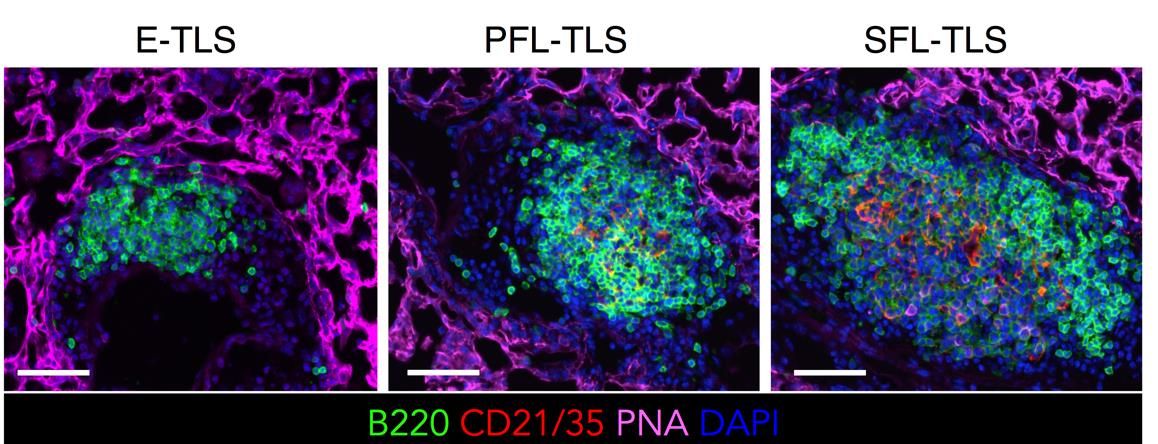Research Group Maries van den Broek
Keywords
Cancer, Immunology, Mouse, Human
Summary & Mission statement
The main goal of our laboratory is to better understand the mutual interaction between the immune system and cancer and how this interaction changes after therapeutic interventions. We think that this knowledge enables a better engagement of the immune system during standard or immune therapies, which will increase the clinical efficacy as well as the durability of such therapies.
Overview
A considerable proportion of tumor tissue consists of recruited and resident cells – often referred to as tumor microenvironment (TME) or stroma – and in fact, tumor progression and response to standard as well as immune therapies are strongly influenced by the TME.
Tumor-specific immunity can be detected in cancer patients but has insufficient potential to control or eliminate the tumor. Strengthening this response may lead to a durable, systemic response that may also control metastases. However, many hurdles preclude the induction of protective anti-tumor immunity, including insufficient priming and innate immune signals and thus in the context of cancer and curtailing protective tumor immunity by the TME. The different research areas of our laboratory have the overarching aim to improve our understanding of the interaction between cancer and the immune response. We pursue this aim by using state-of-the-art methods, preclinical cancer models as well as human material.
Specifically, we focus on following research areas:
1. The impact of radiotherapy on tumor-specific immunity
2. Tertiary lymphoid structures and immune defense against cancer
3. The role of immune cells in different steps of the metastatic cascade
4. The role of tumor-derived exosomes in cancer progression
5. Beta-catenin/Wnt signaling in epithelial cancer

